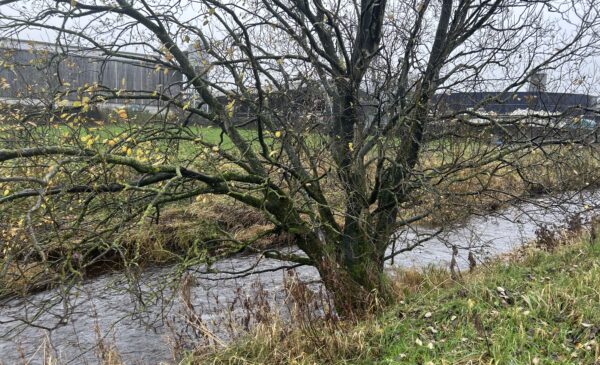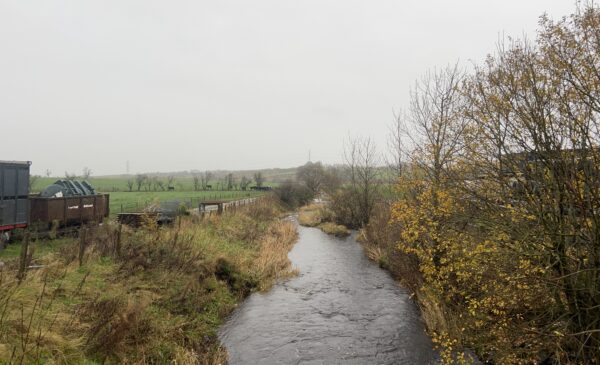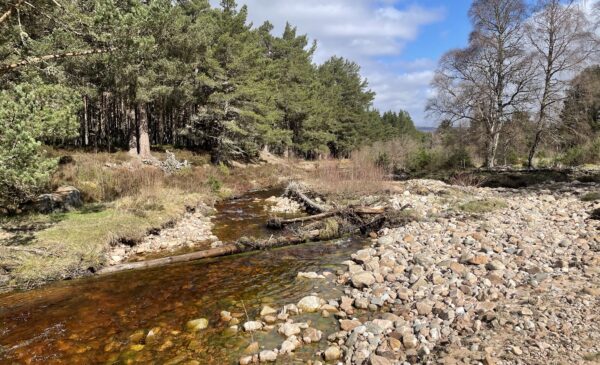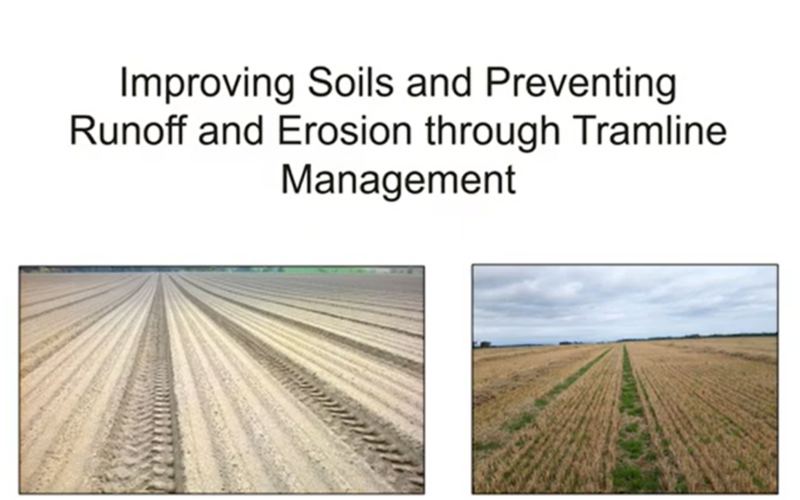Wheelings and tramlines can progressively become compacted and this damage increases runoff and erosion, particularly for fields with steep slopes. Tramlines are a major diffuse pollution pathway. Controlled traffic farming (CTF) systems reduce soil damage, can increase yield and save both fuel and time.
Key points
- Wheelings and tramlines can progressively become compacted and this damage increases runoff and erosion, particularly for fields with steep slopes. Tramlines are a major diffuse pollution pathway.
- Controlled traffic farming (CTF) systems reduce soil damage, can increase yield and save fuel and time.
- Timing and limiting machinery operations to when soils are drier and structurally stronger is an easy low cost tramline management option.
- Increasing the distance between tramlines or choosing spring cropping instead of winter cropping are effective tramline management options and future soil and business benefits will outweigh the costs of implementation.
- Very flexible low pressure tyres can be used to reduce compaction, increase tyre life and fuel efficiency.
- Tramline disruption can easily be done as part of another operation(e.g. the last autumn spraying operations).
- Different tramline disrupters are being designed and tested to reduce runoff and erosion.
Related resources

Ditches and Dredging Part 2: What can you do?
What can farmers do on their farm to manage water in ditches and drains?
Practically, what can farmers do on farm to manage watercourses? There are many ways to…

Ditches and Dredging Part 1: What do you need to know
What can farmers do with regard to ditches and watercourses.
Ditches and Dredging – what information do land managers need? In November 2025, SEPA moved…

Water Scarcity: Impact and mitigation measures in Scotland
With dryer periods affecting water supply when needed, what can land managers do to protect water supply?
Water scarcity, what are the impacts and what can land manager do to reduce the…

